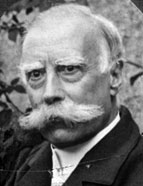

Admitted as an amanuensis clerk at the National Library in 1869, he joined the staff as a 2 nd officer in 1872, and from then on , he worked his way up until he became a Conservator in 1884, a status he retired from in 1911. The stable professional position he held was compatible with his appointment to prominent positions in the political-administrative sphere. He soon became known for the quality of his contributions to journals and newspapers, as well as the works he published, which made him a highly regarded figure. Due to the convergence of these factors, corroborated by his family origins, he was chosen to be the Civil Governor of the District of Horta, in Faial (1877-1878), where he left as a mark of his few months in office a remarkable text addressed to parish priests on their duty to dedicate themselves to the primary education of rural populations in order to counteract widespread illiteracy and thus curb emigration (Ernesto Rebelo, in Arquivo dos Açores [Azores archives] , vol. VIII, 1982, pp. 91-93). Júlio de Castilho thereby expressed one of the concerns of liberalism, a regime of which he was a convinced and sincere supporter and in which he participated as a ‘monarchist without compromise’ (Conde de Bretiandos , ‘O Homem’ [The Man] , In memoriam , p. 141). This mission resulted in the works O Archipelago dos Açores [The Azores archipelago] (1886) and Ilhas Occidentais do Arquipélago Açoreano [Western Islands of the Azorean Archipelago] (1886) . He was also appointed to the same position in the district of Ponta Delgada, but never took office. The sudden end of his first appointment and the fact that he was not appointed to the second was due to the instability of the political-party rotation that the country had entered into. He took up a diplomatic post when he was appointed Consul General of Portugal in Zanzibar (1888). His profile as a public man was combined with that of a ‘tireless and anonymous philanthropist ’ , a ‘ propagandist of noble and healthy doctrines ’ (Matos Sequeira, Elogio histórico [Historical Eulegy ] , p. 370). In a society full of prejudice, ‘incoherence and shameful compromises ’ , he remained a ‘ Catholic without deviation ’ (João Vacondeus , In memoriam , p. 133), with a practice that had repercussions on social concerns. The most significant was the lecture Cristianismo e o Operariado [Christianity and the Labour Force] , given in 1897, in the wake of Leo XIII ’ s encyclical Rerum Novarum on the condition of the workers in the context of the pontifical document ’ s innovative themes.
This work is financed by national funds through FCT - Foundation for Science and Technology, I.P, in the scope of the projects UIDB/04311/2020 and UIDP/04311/2020.
